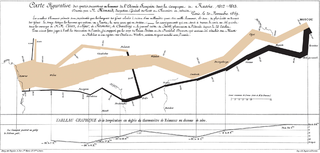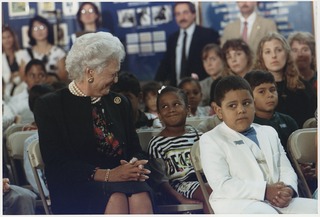Related Research Articles

A design is a plan or specification for the construction of an object or system or for the implementation of an activity or process or the result of that plan or specification in the form of a prototype, product, or process. The verb to design expresses the process of developing a design. In some cases, the direct construction of an object without an explicit prior plan may also be considered to be a design activity. The design usually has to satisfy certain goals and constraints; may take into account aesthetic, functional, economic, or socio-political considerations; and is expected to interact with a certain environment. Typical examples of designs include architectural and engineering drawings, circuit diagrams, sewing patterns and less tangible artefacts such as business process models.

In sociology, habitus is the way that people perceive and respond to the social world they inhabit, by way of their personal habits, skills, and dispositions. People with a common cultural background share a habitus as the way that group culture and personal history shape the body and the mind of a person; consequently, the habitus of a person influences and shapes the social actions of the person.
Social capital is "the networks of relationships among people who live and work in a particular society, enabling that society to function effectively". It involves the effective functioning of social groups through interpersonal relationships, a shared sense of identity, a shared understanding, shared norms, shared values, trust, cooperation, and reciprocity. Social capital is a measure of the value of resources, both tangible and intangible, and the impact that ideal creators have on the resources involved in each relationship, and on larger groups. Some have described it as a form of capital that produces public goods for a common purpose, although this does not align with how it has been measured.

Pierre Bourdieu was a French sociologist and public intellectual. Bourdieu's contributions to the sociology of education, the theory of sociology, and sociology of aesthetics have achieved wide influence in several related academic fields. During his academic career he was primarily associated with the School for Advanced Studies in the Social Sciences in Paris and the Collège de France.

Ethnography is a branch of anthropology and the systematic study of individual cultures. Ethnography explores cultural phenomena from the point of view of the subject of the study. Ethnography is also a type of social research that involves examining the behavior of the participants in a given social situation and understanding the group members' own interpretation of such behavior.
Political capital is the term used for an individual's ability to influence political decisions. This capital is built from what the opposition thinks of the politician, so radical politicians will lose capital. Political capital can be understood as a metaphor used in political theory to conceptualize the accumulation of resources and power built through relationships, trust, goodwill, and influence between politicians or parties and other stakeholders, such as constituents. Political capital can be understood as a type of currency used to mobilize voters, achieve policy reform, or accomplish other political goals. Although not a literal form of capital, political capital is often described as a type of credit, or a resource that can be banked, spent or misspent, invested, lost, and saved.
In the social sciences there is a standing debate over the primacy of structure or agency in shaping human behaviour. Structure is the recurrent patterned arrangements which influence or limit the choices and opportunities available. Agency is the capacity of individuals to act independently and to make their own free choices. The structure versus agency debate may be understood as an issue of socialization against autonomy in determining whether an individual acts as a free agent or in a manner dictated by social structure.
In the field of sociology, cultural capital comprises the social assets of a person that promote social mobility in a stratified society. Cultural capital functions as a social relation within an economy of practices, and includes the accumulated cultural knowledge that confers social status and power; thus cultural capital comprises the material and symbolic goods, without distinction, that society considers rare and worth seeking. There are three types of cultural capital: (i) embodied capital, (ii) objectified capital, and (iii) institutionalised capital.

Visual literacy is the ability to interpret, negotiate, and make meaning from information presented in the form of an image, extending the meaning of literacy, which commonly signifies interpretation of a written or printed text. Visual literacy is based on the idea that pictures can be "read" and that meaning can be through a process of reading.

Field research, field studies, or fieldwork is the collection of raw data outside a laboratory, library, or workplace setting. The approaches and methods used in field research vary across disciplines. For example, biologists who conduct field research may simply observe animals interacting with their environments, whereas social scientists conducting field research may interview or observe people in their natural environments to learn their languages, folklore, and social structures.
E. Patrick Johnson is the dean of the Northwestern University School of Communication. He is the Carlos Montezuma Professor of Performance Studies and professor of African-American studies at Northwestern University. He is also a visiting scholar at the Annenberg School for Communication at the University of Pennsylvania. Johnson is the founding director of the Black Arts Initiative at Northwestern. His scholarly and artistic contributions focus on performance studies, African-American studies and women, fender and sexuality studies.

Mental health literacy has been defined as "knowledge and beliefs about mental disorders which aid their recognition, management and prevention. Mental health literacy includes the ability to recognize specific disorders; knowing how to seek mental health information; knowledge of risk factors and causes, of self-treatments, and of professional help available; and attitudes that promote recognition and appropriate help-seeking". The concept of mental health literacy was derived from health literacy, which aims to increase patient knowledge about physical health, illnesses, and treatments.

Literacy in the United States was categorized by the National Center for Education Statistics into different literacy levels, with 92% of American adults having at least "Level 1" literacy in 2019. According to the U.S. Department of Education, 54% of adults in the United States have prose literacy below the 6th-grade level.
Beverley Skeggs is a British sociologist, noted as one of the foremost feminist sociologists in the world. Currently, she works as a "Distinguished Professor" in the Sociology Department at Lancaster University, developing a Center for Social Inequalities in the North West of England. She continues to run the "Economics of Care" theme at the International Inequalities centre at the London School of Economics (LSE) and is a visiting professor at Goldsmiths University. She has been the head of two of the UK’s leading Sociology Departments, at the University of Manchester and Goldsmiths, as well as co-director of Lancaster's Women's Studies. In addition, she played a part in transforming Britain's oldest sociology journal, The Sociological Review, into an independent foundation devoted to opening up critical social science and supporting social scientists.
Practice theory is a body of social theory within anthropology and sociology that explains society and culture as the result of structure and individual agency. Practice theory emerged in the late 20th century and was first outlined in the work of the French sociologist, Pierre Bourdieu.

Jan Blommaert was a Belgian sociolinguist and linguistic anthropologist, Professor of Language, Culture and Globalization and Director of the Babylon Center at Tilburg University, the Netherlands. He also held appointments at Ghent University (Belgium) and University of the Western Cape. He was considered to be one of the world's most prominent sociolinguists and linguistic anthropologists, who had contributed substantially to sociolinguistic globalization theory that focuses on historical as well as contemporary patterns of the spread of languages and forms of literacy, and on lasting and new forms of inequality emerging from globalization processes.
Cultural studies is an interdisciplinary field that examines the political dynamics of contemporary culture and its historical foundations. Cultural studies researchers generally investigate how cultural practices relate to wider systems of power associated with, or operating through, social phenomena. These include ideology, class structures, national formations, ethnicity, sexual orientation, gender, and generation. Employing cultural analysis, cultural studies views cultures not as fixed, bounded, stable, and discrete entities, but rather as constantly interacting and changing sets of practices and processes. The field of cultural studies encompasses a range of theoretical and methodological perspectives and practices. Although distinct from the discipline of cultural anthropology and the interdisciplinary field of ethnic studies, cultural studies draws upon and has contributed to each of these fields.

Brian Vincent Street was a professor of language education at King's College London and visiting professor at the Graduate School of Education in University of Pennsylvania. During his career, he mainly worked on literacy in both theoretical and applied perspectives, and is perhaps best known for his book Literacy in Theory and Practice (1984).
Tara J. Yosso is a professor in the Graduate School of Education at the University of California, Riverside. Yosso's research and teaching apply the frameworks of critical race theory and critical media literacy to examine educational access and opportunity. She is specifically interested in understanding the ways Communities of Color have historically utilized an array of cultural knowledge, skills, abilities, and networks to navigate structures of racial discrimination in pursuit of educational equality. She has authored numerous collaborative and interdisciplinary chapters and articles in publications such as the Harvard Educational Review,International Journal of Qualitative Studies in Education,Journal of Popular Film and Television, and The Blackwell Companion to Social Inequalities. She has been awarded a Ford Foundation Postdoctoral Fellowship for Diversity and Excellence in University Teaching, and honored with a Derrick Bell Legacy Award from the Critical Race Studies in Education Association. She is extensively cited within and beyond the field of education.

Feminist rhetoric emphasizes the narratives of all demographics, including women and other marginalized groups, into the consideration or practice of rhetoric. Feminist rhetoric does not focus exclusively on the rhetoric of women or feminists, but instead prioritizes the feminist principles of inclusivity, community, and equality over the classic, patriarchal model of persuasion that ultimately separates people from their own experience. Seen as the act of producing or the study of feminist discourses, feminist rhetoric emphasizes and supports the lived experiences and histories of all living beings and in all manner of experiences, and it redefines traditional delivery sites to include the non-traditional locations such as demonstrations, letter writing, and digital processes. An important distinction is made between "feminist rhetoric" and "rhetorical feminism": rhetorical feminism is a strategy that counters traditional forms of rhetoric, favoring dialogue over monologue and seeking to redefine the way audiences define rhetorical appeals. Rhetorical feminism also values listening and silence as dynamic rhetorical practices.
References
- ↑ Pahl, Kate Heron (2019). "Recognizing Young People's Civic Engagement Practices: Rethinking Literacy Ontologies through Co-Production". Politics of Literacies. 13 (1): 20–39. doi: 10.26522/ssj.v13i1.1950 .
- ↑ "Prof Kate Pahl". Manchester Metropolitan University. Retrieved 9 July 2021.
- ↑ "Taking pride in working-class roots in Britain's universities". The Guardian. 10 September 2018. Retrieved 9 July 2021.
- ↑ "Project: Visual Arts". Connected Communities. Retrieved 9 July 2021.
- ↑ Westgate, David (November 1999). "Transformations--children's meaning making in a nursery school". Educational Review. 51 (3): 305–306.
- ↑ Fast, Carina (April 2007). "Book Review: Literacy and Education:Understanding the New Literacy Studies in the Classroom". Journal of Early Childhood Literacy. 7 (1): 115–117. doi:10.1177/1468798407074841. S2CID 144525555.
- ↑ Vaughn, Margaret (2012). "Book reviews: Artifactual literacies: every object tells a story". Community Development. 43 (5): 684–685. doi:10.1080/15575330.2012.741986. S2CID 154870586.
- ↑ Silvester, Katherine (2014). "Review: Artifactual Literacies: Every Object Tells a Story". Reflections. 13 (2). Alternative URL
- ↑ Peel, Anne J. (2012). "Book reviews Language, ethnography, and education: bridging new literacy studies and Bourdieu, by Michael Grenfell, David Bloome, Cheryl Hardy, Kate Pahl, Jennifer Rowsell and Brian Street". Pedagogies. 7 (3): 268–271. doi:10.1080/1554480X.2012.685798. S2CID 142752263.
- ↑ Ferguson, Daniel E. (2016). "Kate Pahl, Materializing literacies in communities: The uses of literacy revisited". Journal of Early Childhood Literacy. 16 (3): 414–417. doi:10.1177/1468798415622607. S2CID 151637854.